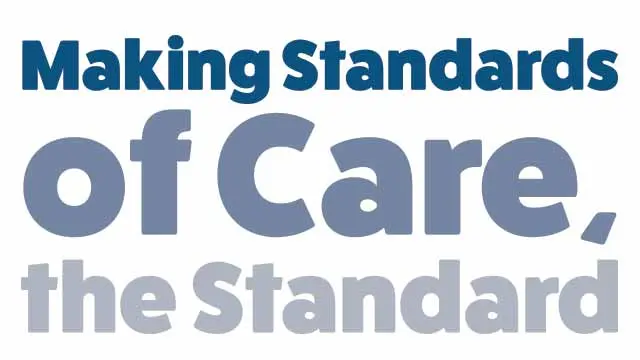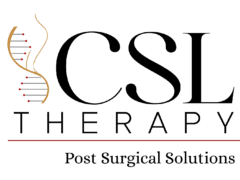Standards of Care & Regulation Codes for the Body Altering Aesthetics Industry


In recent years, the Body Altering Aesthetics industry has witnessed significant growth and innovation. As more individuals seek various cosmetic procedures to enhance their appearance, ensuring the safety and well-being of patients has become paramount. To address these concerns, standards of care and regulation codes have emerged as critical components of this dynamic industry.
Rising Popularity of Body Altering Aesthetics
The body altering aesthetics industry encompasses a wide range of procedures, from liposuction and breast augmentation to facelifts and dermal fillers. These procedures are often elective, driven by individual preferences and desires. As the demand for such services continues to rise, it’s essential to establish comprehensive guidelines to safeguard patient health and promote ethical practices; this is inclusive of the education of providers who will be performing the recovery treatments.
Standards of Care: Ensuring Patient Safety
Standards of care are a set of guidelines and principles that healthcare professionals in the body altering aesthetics industry must adhere to. These standards are designed to ensure the highest level of patient safety, treatment efficacy, and ethical conduct. Here are some key aspects of standards of care in the industry:
- Certification and Licensing: Practitioners must undergo rigorous training and obtain proper certification or licensure in their respective fields + CSL Modalities. Certificancy of providers and trainers ensures that practitioners meet specific educational and competency requirements.
- Informed Consent: Patients must provide informed consent before undergoing any procedure. This process involves a detailed explanation of the treatment, potential risks, benefits, and alternative options.
- Medical Evaluation: Prior to any procedure, patients should undergo a thorough medical evaluation to determine their suitability for the treatment. This evaluation includes assessing their overall health, medical history, and any underlying conditions. This information should be made available to clients postOp providers at the start of treatments OR be released as needed through waivers from a clients surgical staff.
- Patient Education: Practitioners should educate patients about pre- and post-operative care, including potential complications and recovery expectations. Informed patients are better prepared for their procedures and recovery.
- Safety Protocols: Adherence to strict safety protocols, including proper sterilization of equipment and maintaining a sterile environment, is crucial to prevent infections and complications.
- Continuing Education: To stay up-to-date with the latest techniques and technologies, practitioners should engage in ongoing education and training in the field.
For a full list of Standards of Care for the modalities in the Body Altering Aesthetics industry: https://csltherapy.org/standards-of-care/
Regulation Codes: Ensuring Industry Integrity
Regulation codes are established by governing bodies and organizations within the body altering aesthetics industry. These codes provide a framework for ethical behavior and professional conduct. They play a pivotal role in maintaining industry integrity. Here are some key aspects of regulation codes:
- Licensure Requirements: Governing bodies often mandate that practitioners obtain licenses to practice in their respective fields. This ensures that individuals meet specific educational and competency standards.
- Scope of Practice: Regulation codes define the scope of practice for each profession within the industry. Practitioners must adhere to these guidelines and not exceed their authorized scope.
- Consumer Protection: These codes include measures to protect consumers’ interests, such as clear communication, dispute resolution mechanisms, and addressing complaints.
- Professional Conduct: Practitioners are expected to maintain the highest level of professionalism, including respecting patient privacy and dignity, maintaining confidentiality, and avoiding conflicts of interest.
- Record Keeping: Detailed and accurate record-keeping of patient information, procedures, and outcomes is essential for transparency and accountability.
- Quality Assurance: Continuous quality improvement measures are often required to ensure that practitioners deliver the highest standard of care to patients.
The Role of Accrediting Bodies
Accrediting bodies and organizations, such as CSL Therapy Organization, play a significant role in establishing and maintaining standards of care and regulation codes in the body altering aesthetics industry. These bodies ensure that practitioners receive appropriate training, adhere to ethical standards, and are equipped to provide safe and effective treatments.
For a full scope of regulation and codes, please refer to https://csltherapy.org/csl-regulatory-violations/
Conclusion
As the body altering aesthetics industry continues to evolve and expand, the importance of standards of care and regulation codes cannot be overstated. These guidelines are essential for protecting patient safety, ensuring ethical conduct among providers and educational trainers, & upholding the integrity of the industry. Allied healthcare professionals and budding learners can rest assured on spending their monies with certified providers and licensed trainers. Whether you’re a practitioner or a prospective patient, being informed about these standards and regulations is vital for making well-informed decisions in the body altering aesthetics industry.
